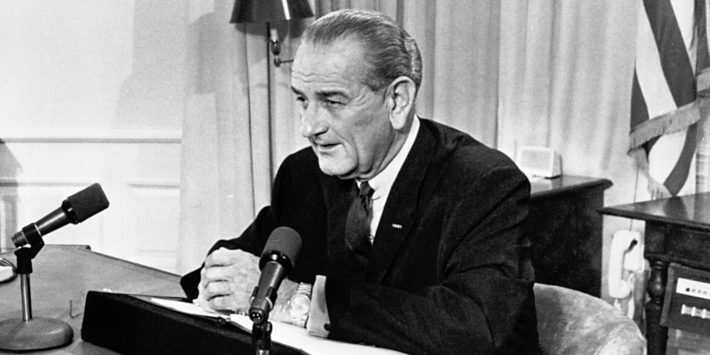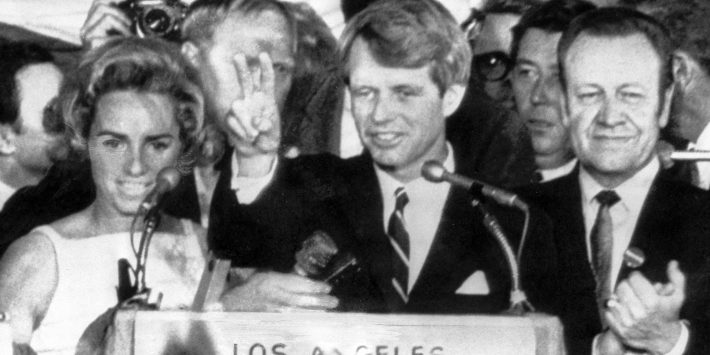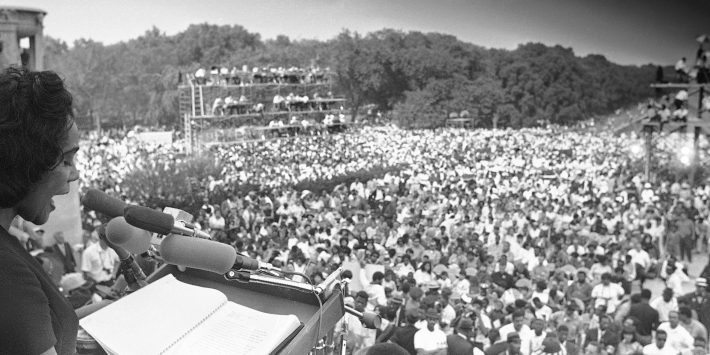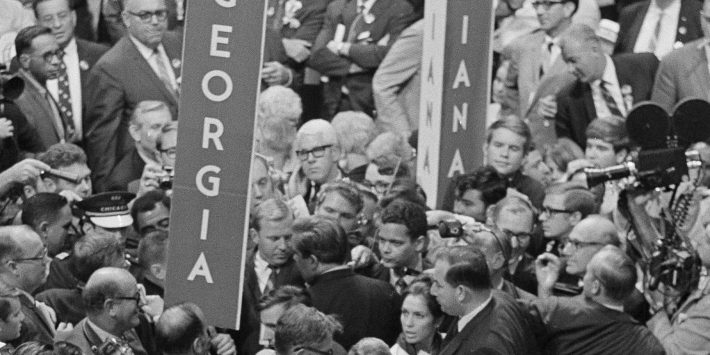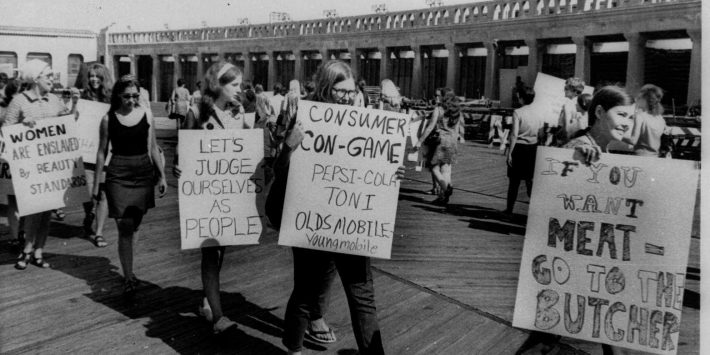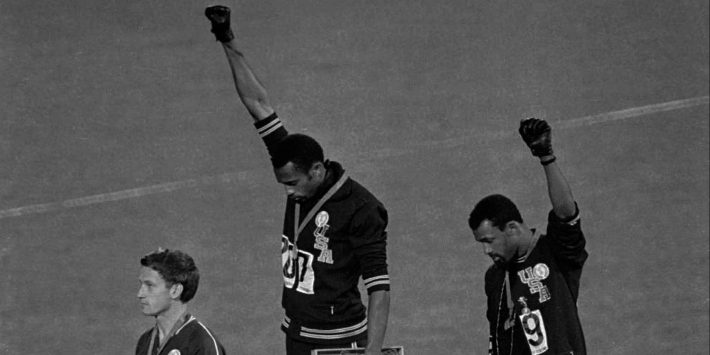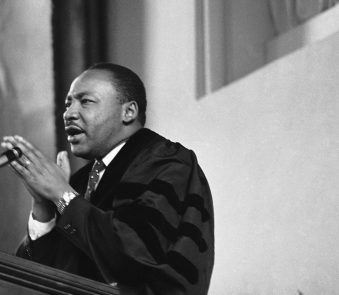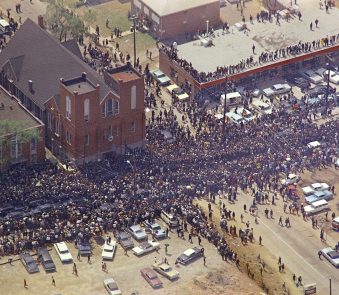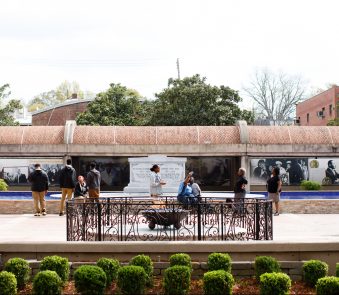A Look Back At The Events That Shaped America In 1968
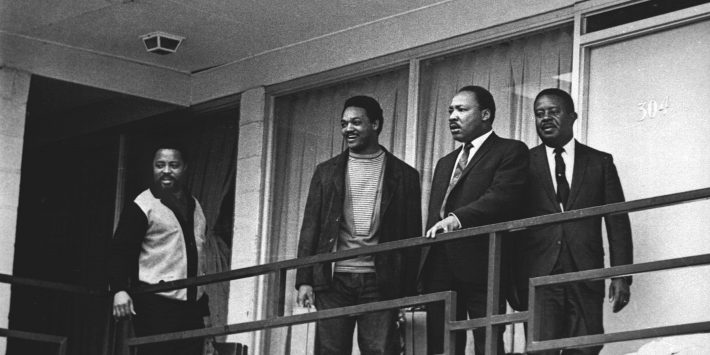
 In My List
In My List
The year Martin Luther King Jr. was killed, 1968, was a tumultuous era in American history. This timeline shows what 1968 looked like for the United States, and especially Atlanta.
January
- 15: Martin Luther King Jr.’s 39th birthday. King was born in 1929 in Atlanta.
- 23: North Korean boats captured the USS Pueblo and its 83 crew members, according to History.com. The crew’s 82 survivors were freed on Dec. 23.
- North Vietnam launched Tet Offensive against U.S. and South Vietnam, according to History.com. Historians say January 1968 marked a turning point for U.S. attitudes toward the Vietnam War.
February
- 4: King delivered a sermon at Ebenezer Baptist Church, in which he said how he wanted to someday be described in his eulogy, “I’d like somebody to mention that day that Martin Luther King Jr. tried to give his life serving others. I’d like for somebody to say that day that Martin Luther King Jr. tried to love somebody … that I tried to love and serve humanity. Yes, if you want to, say that I was a drum major for peace … for righteousness.”
March
- 28: King is in Memphis, Tennessee, for a protest as part of the Memphis Sanitation Workers Strike. After King himself had been led from the scene, a 16-year-old was shot and killed by police, according to the King Institute at Stanford University.
- 31: President Lyndon B. Johnson delivered an address to announce steps to limit the war in Vietnam and announced he would not seek reelection.
April
- 3: King, at the Masonic Temple in Memphis, Tennessee, delivers his “I’ve Been to the Mountaintop” speech. He seemed to foreshadow his untimely death at the end of his speech: “I’ve seen the Promised Land. I may not get there with you … I’m not worried about anything; I’m not fearing any man. Mine eyes have seen the glory of the coming of the Lord.”
- 4: King spent the day at the Lorraine Motel in Memphis, Tennessee, working and meeting with local leaders on plans for his Poor People’s March on Washington to take place late in the month. Around 6 p.m., King was shot. He was declared dead an hour later at St. Joseph’s hospital.
- King’s assassination sparks rioting in Baltimore, Boston, Chicago, Detroit, Kansas City, Newark, Washington, D.C. and many cities.
- 5: President Johnson declared April 7, 1968, as a national day of mourning for King, according to the national archives.
- 8: Coretta Scott King leads thousands of protestors in a march through the streets of Memphis to honor King, according to Stanford’s King Institute.
- 9: King’s funeral is held in Atlanta. Georgia Gov. Lester Maddox refuses to close the state government in King’s honor or attend the funeral. King’s coffin was carried by a wagon and mule followed by thousands of mourners through Atlanta streets. The funeral procession was televised nationwide.
- 11: President Johnson signed the Civil Rights Act of 1968.
- Coretta Scott King established the King Center after her husband’s death.
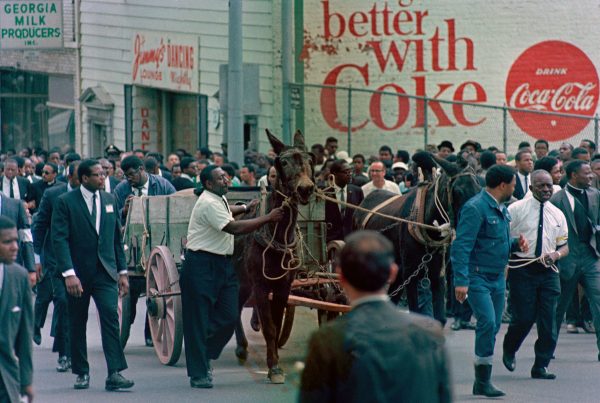
May
- 3: The U.S. and North Vietnamese delegations agree to begin peace talks in Paris, according to History.com.
- 12: Coretta Scott King led the first wave of demonstrators in the Poor People’s March on Washington, according to Stanford’s King Institute.
- 13: Thousands of people set up a protest camp on the National Mall, and they stayed there about a month.
June
- 3: Andy Warhol was shot in his New York City loft.
- 6: Bobby Kennedy was assassinated in Los Angeles.
- 27: After an international manhunt, James Earl Ray was arrested in England and convicted of the murder of King. Ray died in prison in 1998.
July
- 14: Hank Aaron hit his 500th home run.
August
- 28: The Democratic National Convention was held in Chicago. Thousands of Vietnam War protestors battled police outside, while inside, the Democratic Party internally disagrees on its own stance on the Vietnam War, according to History.com.
- 28: U.S. ambassador John Gordon Mein was assassinated in Guatemala City, while attempting to escape potential kidnappers, according to the U.S. Office of the Historian.
September
- New York Radical Women, a group of feminists, protested the Miss America Pageant, throwing mops, pots, pans, girdles and Playboy magazines into a garbage can, according to NPR.
October
- The Summer Olympic Games opened in Mexico City. Tommie Smith and John Carlos, U.S. athletes and medalists in the 200-meter dash, raised their fists in the air during the “Star-Spangled Banner” at the medal ceremony, according to History.com.
- 31: President Johnson announces a total halt to U.S. bombing in North Vietnam, according to History.com.
November
- 5: Richard Nixon defeated Hubert H. Humphrey to succeed Johnson as president. George Wallace got 13.5 percent of the vote (and won in Georgia), according to Britannica.com.
- 5: Incumbent Democratic Sen. Herman Talmadge defeated former Atlanta Mayor Maynard Jackson for U.S. Senator, according to the New Georgia Encyclopedia.
- Fulton and DeKalb voters reject MARTA bonds in November election.
- 14: National Turn in Your Draft Card Day is observed with rallies and protests on college campuses throughout the country.
December
- The national unemployment rate, at 3.3 percent, is the lowest it has been in 15 years.
- The launch of Apollo 8 begins the first U.S. mission to orbit the moon.
Georgia Politics
Georgia’s Governor: In 1968, Georgia’s governor was Lester Garfield Maddox, an Atlanta native who opposed racial desegregation. Fearing riots, he heavily policed King’s funeral procession and refused to order the flags at half-mast, according to the New Georgia Encyclopedia.
Atlanta’s Mayor: In 1968, Ivan Allen Jr. was Atlanta’s mayor. According to the New Georgia Encyclopedia, Allen had worked with King and the Southern Christian Leadership Conference. He also ordered the removal of all “white” and “colored” signs from city hall and desegregated the cafeteria. Allen also authorized black policemen to arrest white citizens and hired Atlanta’s first black firefighters.
Pop culture of 1968:
– The NBA comes to Atlanta with the purchase of St. Louis Hawks
-The “Memorial Arts Center,” later the “Robert W. Woodruff Arts Center,” opens.
Top songs of 1968 included:
– “(Sittin’ On) The Dock of the Bay” by Otis Redding
– “Mrs. Robinson” by Simon & Garfunkel
– “Hey Jude” by The Beatles
– “Love Child” by Diana Ross & the Supremes
– “I Heard it Through the Grapevine” by Marvin Gaye
Top movies included:
– “The Graduate”
– “Planet of the Apes”
– “Rosemary’s Baby”
– “Funny Girl”
